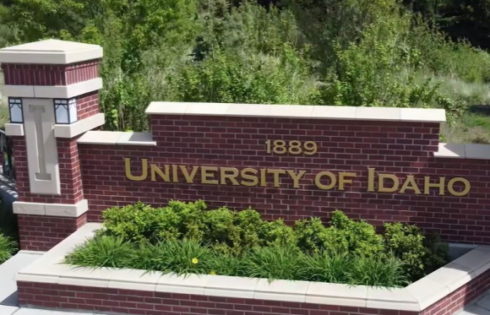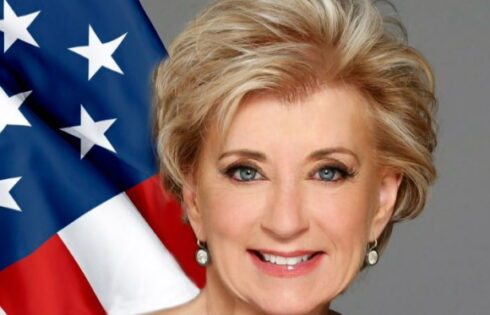A professor is accusing a workshop sponsored by the National Endowment for the Humanities on World War II of having a blatant anti-military bias.
In Summer 2010, the NEH sponsored two one-week workshops for community college faculty members with a $142,000 grant. Held at the University of Hawaii’s East-West Center, the conference was entitled “History and Commemoration: Legacies of the Pacific War.”
One conference participant, Rock Valley College Professor Penelope Blake, believes that the NEH should cease funding for such workshops. In a letter to her Illinois congressmen and NEH Chairman James Leach, she proposed “a complete overhaul of the East-West Center program, along with a suspension of funding until the NEH guidelines are satisfied.”
“What I experienced at the East-West Center Conference was a sustained, biased and politically-motivated attack on the U.S. military, American valor and the symbols which commemorate it, and World War II veterans,” she wrote.
Both the conference readings and speakers, Blake claimed, presented the US military as “an imperialistic, oppressive force which has created and perpetuated its own mythology of heroism and liberation.”
“(Since) veterans’ memories of their own experiences in the war are suspect and influenced by media and their own self-delusion,” Blake said, the conference suggested that historians must “correct” their stories. Americans, for example, should recognize that the Japanese attack on Peal Harbor was the result of Japan’s status as “a victim of western oppression.”
Blake asserted that war memorials were portrayed as “symbols of military aggression and brutality ‘that pacify death, sanitize war and enable future wars to be fought.'” The view advanced by the conference was that war memorials should be “recast as ‘peace memorials’ sensitive to all viewers from all countries, especially the many visitors from Japan,” Blake said.
In some case, Blake accused the seminar speakers of blatant “anti-military propaganda.” One speaker and author referred to “‘the practice’ of the U.S. military in WWII to desecrate and disrespect the bodies of dead Japanese.” Although this claim appears in his scholarly work, Blake said, the speaker admitted when pressed that this is not a practice of the US military.
Though appalled by what she took to be the conference’s overall message, Blake acknowledged that a few presentations and articles were “truly excellent” and that a panel of World War II veterans comprised a “highpoint of the conference.”
Geoffrey White, Director of the NEH Landmarks and professor of anthropology at the University of Hawaii, Manoa, disagreed strongly with Blake’s analysis. He also pointed out that 41 of 42 workshop participants reviewed the workshop favourably.
“Our program put WWII veterans in a position of honor and respect throughout–inviting members of the Pearl Harbor Survivors Association to our opening reception and featuring several in a panel of ‘veterans voices’ the first day of the program,” White said. “We also spent two days of the program visiting memorial sites with National Park Service personnel to assist in interpretation the importance of those places for American history.”
Multiple requests for comment by the NEH on both the workshop and funding for similar events have gone unreturned.
In a response to Blake dated November 1, NEH Chairman James Leach emphasized the need to consider “contrarian perspectives.” He also stated that the NEH intends to strengthen their “review process regarding non-partisanship” through four specific actions.
According to Leach, the NEH will make the participant evaluations available to panels that are evaluating wether or not to repeat that event and strengthen and display more prominently “NEH’s commitment to nonpartisanship.” The NEH will also provide program directors and participants with a “one page Rules of Civility statement.” Finally, once funding for a project has been secured, the program director will receive a reminder of these policies.
In his response, Leach also reflected on the role of the NEH.
“NEH is mindful of its obligation to stand as a guardian of intellectual freedom and the free flow of ideas,” he wrote. “Freedom, including the right to dissent, is what the World War II generations fought for.”
In a November 6 letter to Leach, however, Blake expressed her dissatisfaction with Leach’s response to her concerns.
“Unfortunately the four actions you propose at the conclusion of the letter, which consist mostly of reminders and rewording of already clear guidelines, will not produce any meaningful change, as I am sure you know,” she countered.
According to their website, the NEH still plans to fund several upcoming seminars at the East-West Center, entitled “Pearl Harbor: History and Memory Across Asia and the Pacific” and “Southeast Asia at the Crossroads of World War II.” These programs have been allotted $180,000 and $180,900 respectively.
Multiple requests for comment by NEH Communications Director Judith Havemann were unanswered on Blake’s views and whether or not these seminars would still be funded by the NEH.
Claire Gillen is a junior at the University of Notre Dame, where she is executive editor of the Irish Rover. She is a member of the Student Free Press Association, and was a 2010 summer fellow at the Washington Times.




Please join the conversation about our stories on Facebook, Twitter, Instagram, Reddit, MeWe, Rumble, Gab, Minds and Gettr.